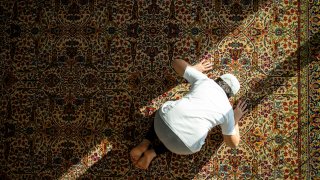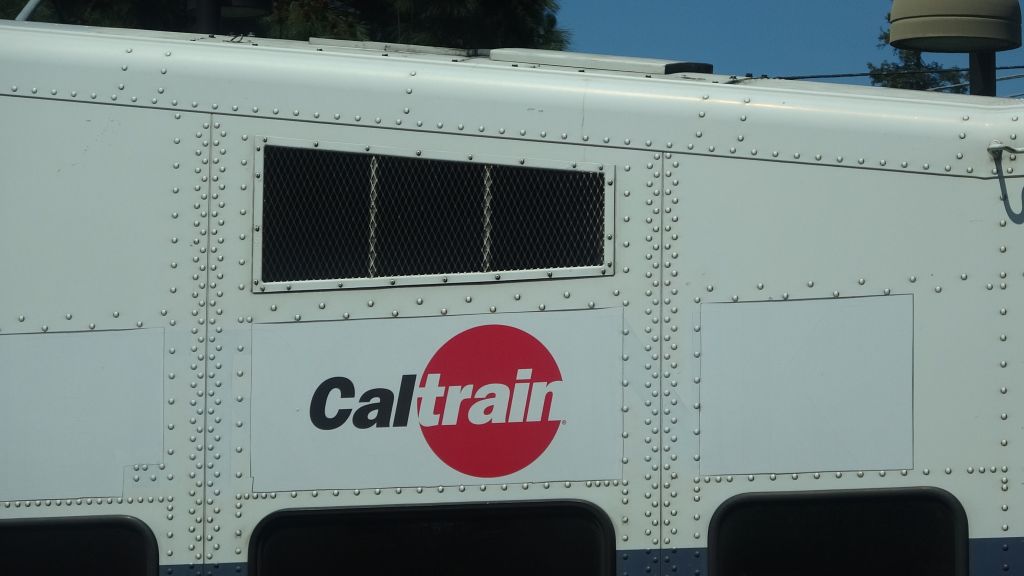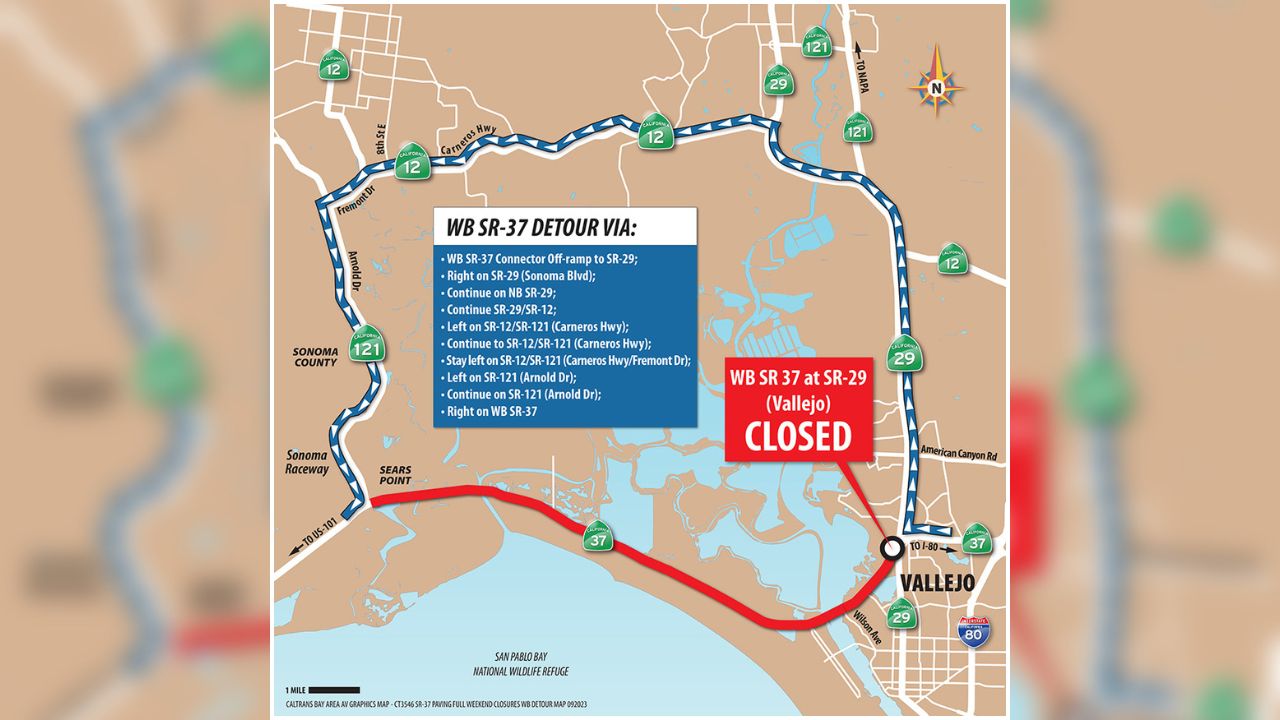
Local mosques are gearing up to observe the Islamic holy month of Ramadan -- a 30-day period where Muslims around the world fast daily from sunrise to sunset, gather for community prayers and participate other rituals.
On Tuesday, Muslims begin their first day of fasting which means as long as the sun is out, those who are able to fast cannot eat, drink or smoke. And yes -- that also means no water.
Before the pandemic, many mosques would be open 24/7 during Ramadan so Muslims could join together to eat Suhoor, their pre-fasting meal before the sun rises, and gather at sunset to break fast and join in a specific Ramadan prayer called Tarawih.
"It's a very special time for the Muslim community," said Abdullah Ibrahim, outreach secretary for the Muslim Community Association. "And the mosque is a place for everyone to feel encouraged and for everyone to grow with each other… It's sort of like the combining of hearts."
Get a weekly recap of the latest San Francisco Bay Area housing news. Sign up for NBC Bay Area’s Housing Deconstructed newsletter.
This year, the local South Bay mosques intend to foster that sense of community that was missing in April 2020 when the pandemic forced the doors of religious institutions shut. But, like every other activity during the pandemic, reopening is not possible without a myriad of safety precautions.
For mosques, this means limited capacity with spaces marked for social distancing, sign-in sheets for possible contact tracing and shorter prayer times to limit potential exposure to the virus. It also means no community dinners, activities or long nights together in the mosque.
"We want our community to be safe, more than anything," Ibrahim said. "And we want them to feel safe as well, that we've put in the initiative and tried to think of how we can eliminate any sort of spread of COVID."
Local
The Muslim Community Center, one of the largest mosques in the nation with the capacity to host up to 5,000 individuals, is opening to the public at nearly 25 percent capacity, despite guidelines allowing those in the orange tier to open at 50 percent capacity.
"So, we're looking at possibly up to 1000 people we can accommodate," Ibrahim said.
The Santa Clara mosque updated its air filtration and heating, ventilation and air conditioning systems so it could safely utilize the main prayer halls and banquet rooms inside. It also added additional speakers to its outside facilities to transform the soccer field and basketball courts into prayer areas.
The mosque also used tape to outline prayer spots six feet apart and created guidelines for attendees to wear a mask, bring their own prayer rugs and reserve a prayer spot online before attending.
These changes are a major shift in the way the mosque would operate during Ramadan -- a joyous occasion for Muslims marked by late nights filled with prayer, supplication and socializing sometimes lasting until the early morning prayer at sunrise.
Children would use the outdoor facilities, or the game room filled with movies, video games and board games, all night. Many attendees would also join for iftar - the sunset meal where Muslims break their fast.
"Unfortunately, all that is going to change this year," Ibrahim said. "But hopefully restrictions this year can allow us to return to normal next year."
This year the mosque is doing a drive-thru iftar where families or individuals in need can quickly pick up boxed meals. Lecture series and the mosque's annual Open House -- where Muslim attendees invite their non-Muslim friends, coworkers and loved ones to learn more about Ramadan -- will also be going virtual.
The safety protocols enacted by the Muslim Community Center are almost unanimous in South Bay mosques.
The Evergreen Islamic Center, located in south East San Jose also expanded prayer to be held in the parking lot and the lobby of the mosque with tape on the floor to facilitate social distancing. The mosque also has smaller rooms with the capacity to fit about five people in prayer that could be reserved for families who do not need to social distance.
And while this mosque is also forgoing its daily iftars, about 300 boxed meals will also be available every day for pick up at the mosque.
"We will also be offering dates, water and other small snacks in boxes for those who come to Maghrib (sunset) prayer so they can break their fast in the car," said Akbar Syed, president of the Evergreen Islamic Center. He also noted that the Ramadan prayer, Tarawih, will be significantly shorter to decrease the risk of infection.
In Islamic tradition, the Imam, or person leading prayer, will recite the entire Quran through Tarawih prayers, but this year shorter prayer times will not allow that to happen.
"It's disappointing, but it's safer, which is most important," Syed said. "And it's better than nothing." And that seems to be the general consensus among local Islamic leaders -- resuming even a fraction of traditional community-based Ramadan activities is a step up from 2020 where county and state guidelines prevented all gatherings regardless of location, capacity or time, in the beginning months of the pandemic.
"It was very difficult spiritually and mentally for many Muslims last year because we didn't have anything available," said Husam Hammad, treasurer and administrator at Blossom Valley Muslim Community Center. "I got many calls of people who were struggling with the isolation. During Ramadan especially, we always yearn to go to the mosque and be with our brothers and sisters."
Blossom Valley Muslim Community Center is another San Jose mosque that will have its doors open this Ramadan.
Because of social distancing and the limited space, it will also only be operating at 25 percent capacity. While it will not hold any virtual events or iftars, it will host local leaders like Zahra Billoo, the executive director for the Council on American-Islamic Relations San Francisco Bay Area office and newly appointed San Jose Police Deputy Chief Elle Washburn to speak to the community after sunset prayers.
"There is some apprehension in the community because we couldn't accommodate everybody," Hammad said. "But that's the only drawback…our community is excited and ready to go."
Ramadan is the ninth month of the Islamic calendar based on the lunar cycle. It started at sunset on April 12 and will end at sunset on May 12.
During this month, Muslims are not only encouraged to fast and pray, but also donate to charity and refrain from all hurtful or harmful behaviors.
Leaders say the purpose of this holy month is to grow their connection with God, but also to empathize with those living in hunger and poverty so that they are more eager to help those in need and be grateful for their fortunes.
Most mosques will host Tarawih and other obligatory prayers but will require an online reservation. Reservations can be made at each mosque's respective website.



